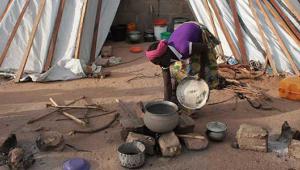The World Health Organisation and the World Bank’s Tracking universal health coverage report measured health service coverage and financial protection in 37 countries to examine progress towards universal health coverage (UHC) – one of the Millennium Development Goals.
The two institutions admitted there was still a long way to go “on the road” to UHC, both in terms of health service and financial protection coverage.
“This report is a wake-up call: it shows that we’re a long way from achieving universal health coverage,” said Tim Evans, senior director of health, nutrition and population at the bank.
“We must expand access to health and protect the poorest from health expenses that are causing them severe financial hardship.”
The report said it was vital for countries such as Bulgaria, Tanzania, Russian and the Republic of Korea to increase government health expenditure to support progress towards UHC.
Governments pursuing UHC should aim to achieve a minimum of 80% coverage of essential health services and that everyone should be protected from catastrophic and impoverishing health payments, the report recommended.
It also estimated that at least 400 million people lacked at least one of the seven essential health services such as family planning or child immunisation, while fees for health care – for those who used the service – were high in relation to income.
Across the 37 countries, the research found that 6% of the population in low and middle-income countries were pushed to the $1.25 a day extreme poverty line because they had to pay for health services out of their own pockets.
When the report factored in a poverty measure of $2 a day, 17% of people in these countries were impoverished by health costs.
“These high levels of impoverishment, which happen when poor people have to pay out of pocket for their own emergency health care, pose a major threat to the goal of eliminating extreme poverty,” said Kaushik Basu, senior vice president and chief economist at the World Bank.
Basu said global health leaders and international donors needed to act upon these findings as they moved into the post-2015 development era or risk the world’s poor being left behind.
The report, which was supported by the Rockefeller Foundation and the Japanese Ministry of Health, comes six months before the second annual UHC Day on December 12.
Meanwhile, The US Agency for International Development, the World Bank, WHO as well as countries and partners last week endorsed a roadmap to measure and monitor public health programmes as part of the post-2015 development goals.








